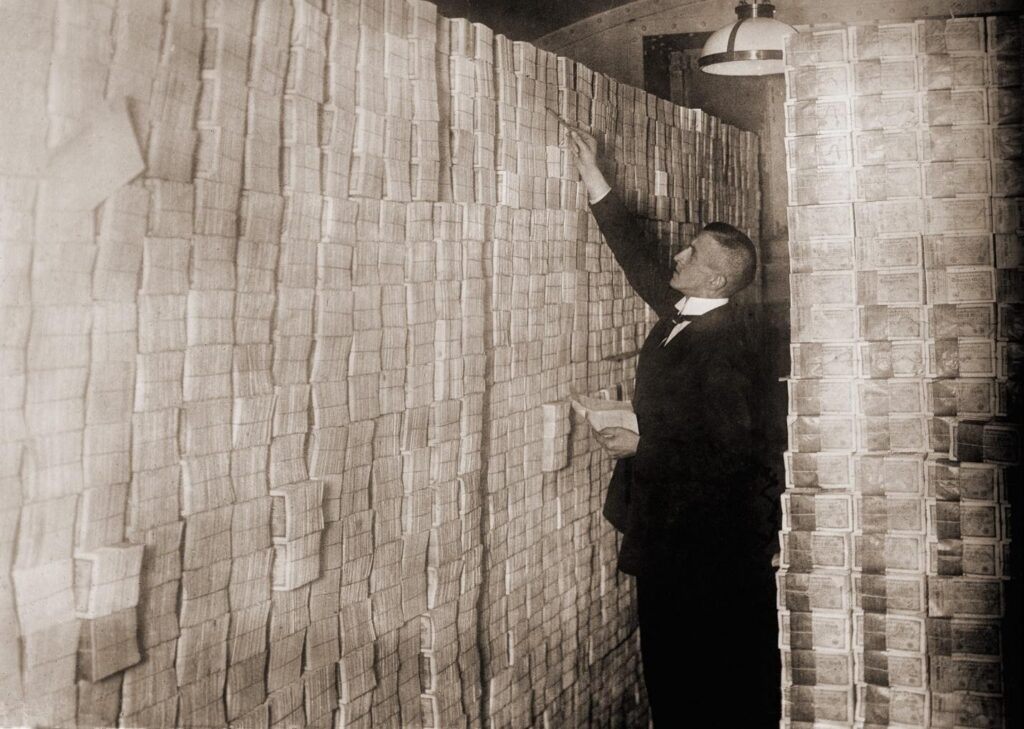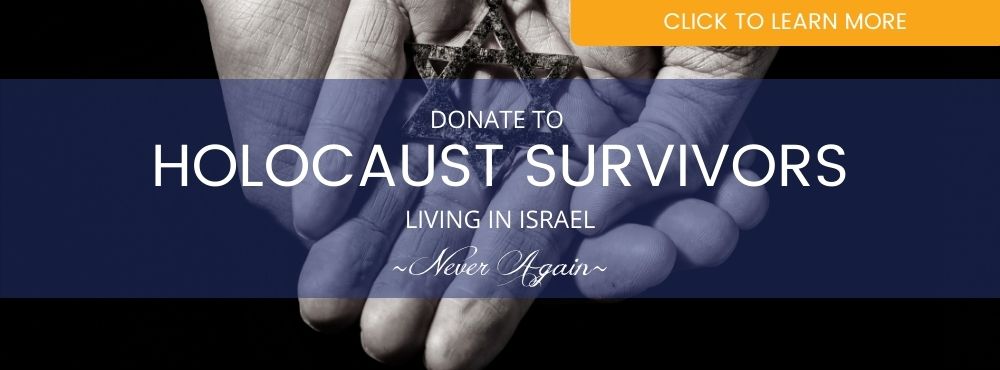A History of Overcoming | Part 1
Table of contents
How can a nation go from a democracy to one willing to give up its freedoms? How can a population be seemingly silent to the cruel treatment of hardworking people?
Germany, prior to the rise of Hitler, was considered a democracy by many, but that quickly changed…
Join us as we explore what set the stage for Hitler’s rise to power… and how a democratic society was willing to sacrifice freedom and prepare for a Holocaust.
How Hitler Came to Power
Many place the rise of Adolf Hitler to chancellor of Germany in 1933 as a sort of starting point of events that led up to the Holocaust. Yet, despite it being a key point and a sharp propeller of events, the stage had to be set before that moment…
The loss of WWI in November of 1918 was a blow that echoed long after the last shots of the war were fired for Germany and her citizens. All the more so because Germans had been told they were winning the war up until the very day surrender was announced… resulting in a shaking of confidence in the government, and prompting many to create conspiracy theories around the war. One particular one being that the Jews were responsible, if not for the war itself, then for defeat.
For Germany, losing the war was more than simply a loss of ego. With it came the death or trauma of a generation of men, with the dead numbering in the millions. And the June, 1919 ‘Treaty of Versailles’ did little to help. As it, amongst other things, created for Germany: a loss of colonies and valuable territories; a 33-billion-dollar payment to other nations, which while never paid in full, would equal well over $400 billion today; many limitations on their military presence, such as, disallowing their possession of submarines, limiting their army to 100,000 soldiers, and limiting the number of weapons and artillery the nation could possess.
Further, with the treaty, Germany was essentially blamed for everything, from the war itself to the resulting damages… and no matter if the treaty was justified or not, with the nation already financially, socially, and governmentally on shaky ground, for Germany, the treaty was virtually a deathblow.
As a result, by 1923, Germany was economically unhinged; with it taking 4 BILLION German marks to equal one American dollar. The middle class was all but a thing of the past and the German mark fell to such a low value that children would play with stacks of money or turn them into kites, while many adults used marks to make clothing, decorate their walls, or even burn them as a low-cost fuel to cook or heat their homes with.

All of this did little to create feelings of generosity toward those primarily democratic countries involved in the treaty or those not within Germany’s inner circle… creating instead an atmosphere ripe for an ‘us versus them’ scenario. A scenario that Hitler, a veteran of WWI who had been wounded in the conflict, used for his own purposes.
Other factors played their part—college classes on socialism, the media, Hitler’s propaganda, etc.—before and after Hitler was appointed as chancellor and the political order was changed. But it was largely the conditions in Germany that allowed these things to thrive…
The need of the people in Germany combined with their military demise made them easy targets. Not only to the shifting away from their democratic society, but to focusing on survival rather than overcoming and thriving.
Nearly every citizen in early 1930’s Germany experienced lack. They were worn out and tired from the war. And they were prepared to believe almost anything that was laid before them. There was an atmosphere of fear; one that many exploited—from Hitler all the way to the media that supported him.
The surprising thing is not that a people who needed a wheelbarrow full of money to buy a single loaf of bread would want political change. It is that, despite Hitler moving VERY quickly in his first months as chancellor regarding his quest against the Jews, and even his power grabs… he did not face repercussions. He did not face a challenge or a question that was loud enough for people to hear.
Certainly not everyone agreed with what Hitler was doing at that moment, or even later when the Holocaust ‘officially’ began… but Hitler’s momentum, position, authority, even his ‘likeability,’ were not questioned or brought down.
Hitler, within mere months of being appointed chancellor on JANUARY 30, 1933, was responsible for:
- Opening Dachau concentration camp on MARCH 22—first meant for political prisoners
- The boycott of Jewish shops and businesses which began APRIL 1
- Various laws passed APRIL 7 that barred Jews from holding civil service, university, and state positions
- Laws passed on JULY 14 to strip East European Jewish immigrants of German citizenship
In about half a year Hitler managed to initiate a rewiring of German thought not only toward democracy, but toward Jewish people. Suddenly Jews were seen as the ‘other,’ as ‘troublemakers,’ and even, not long after, as ‘less than human.’
Approximately six months is all it took. That is all. But in many ways it was less than that…
By May of 1933—three months after Hitler became chancellor—people began burning books written by Jews. People began focusing over a decade’s worth of anger and frustration to where they were led by Hitler and the media.
They began using the Jewish people as their ‘scapegoat.’
Preparing for a Holocaust
Hitler’s first months as chancellor were preparation for his plans to expand his rule and to annihilate the Jews.
- Through laws he quickly worked to shift general opinion; in his favor, and against the Jews.
- Through his building of a concentration camp—which was completed less than two months after his rise to power—he created a place to put political prisoners and the foundation for his future plan of destroying the Jewish people.
- Through his propaganda, Hitler created a version of himself that was ‘loved’ by children and animals, full of ‘virtue,’ and ‘like you,’ preparing for another rise in power to fulfill his every desire of domination and destruction.
Yet, while these measures were swift and often severe, only a year and a half into his role as chancellor, Hitler went beyond ‘legal’ actions…
While generally there was silence to what Hitler was doing, even among many who opposed his actions, he still faced opposition. To himself, his actions, and the new government he desired.
In order to maintain power and eventually rule Germany, Hitler needed a physical force to combine with his active mental warfare. He needed the army’s support, which Hitler was willing to go outside of the law to get.
In late June and early July of 1934, Hitler had members of the SS murder the SA chief of staff, Ernst Röhm, and his top commanders to appease military leaders and secure their support. And it did much to open the way for Hitler to soon reach the first of his many goals… becoming president of Germany.
On August 2, 1934, the current president of Germany, von Hindenburg, died, and Hitler’s military connections quickly moved into action… obtaining the now vacant position for Hitler. Except, despite it being a steppingstone to his plans, it would be a short lived rank. For merely 17 days later, on August 19, Hitler abolished the position of president and created for himself a new title to go alongside his position as chancellor… Führer.
From that moment, Germany would never look the same. With the military on his side. With men like Himmler as chief of the SS working to remove the police force and replace it with the Gestapo—over which he placed his own deputy. With the nation in unrest. With the ruining of fortunes through the economic collapse. With a new government in place…
It was as if Hitler’s plans were set in stone… with no one prepared to take on the challenge of eroding it.
Join us as we continue this exploration in Part 2 of A History of Overcoming…
Takeaway
As we can see from the early days of what would become the Holocaust, there were many contributing factors. From a war Germany failed to win, to disastrous social change, to economic hardships. The German people were weary. They were complacent. And they no longer valued the freedoms of democracy. They were willing to have a government system that did not maintain democratic values if it meant that what they were going through might end. But this complacency soon brought about corrupt governments, media, and military forces; along with the removal of their police force.
Here are a few questions we may want to consider:
- What can we take away from this?
- What can we learn from Germany?
- Do we see any patterns that echo today’s world?
- What can individuals do when faced with these problems?
